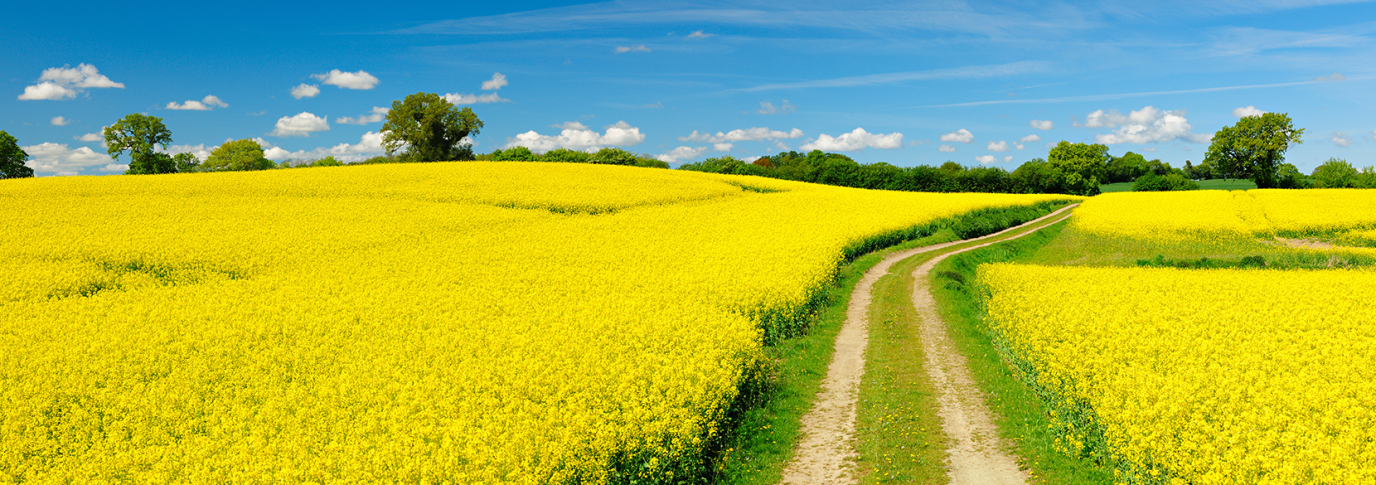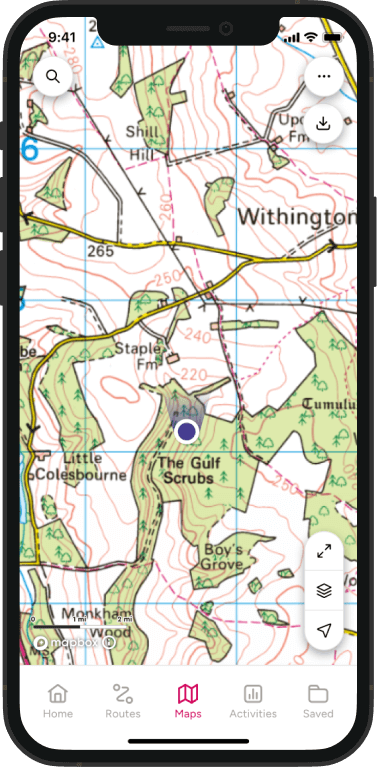Why you should go it alone and how to plan a great adventure
A lack of confidence, the thought of planning or a fear about what may happen, stops many of us from venturing out alone. OS Champion Alex Staniforth explores the benefits of solo adventures and offers his advice on how you can plan your own.
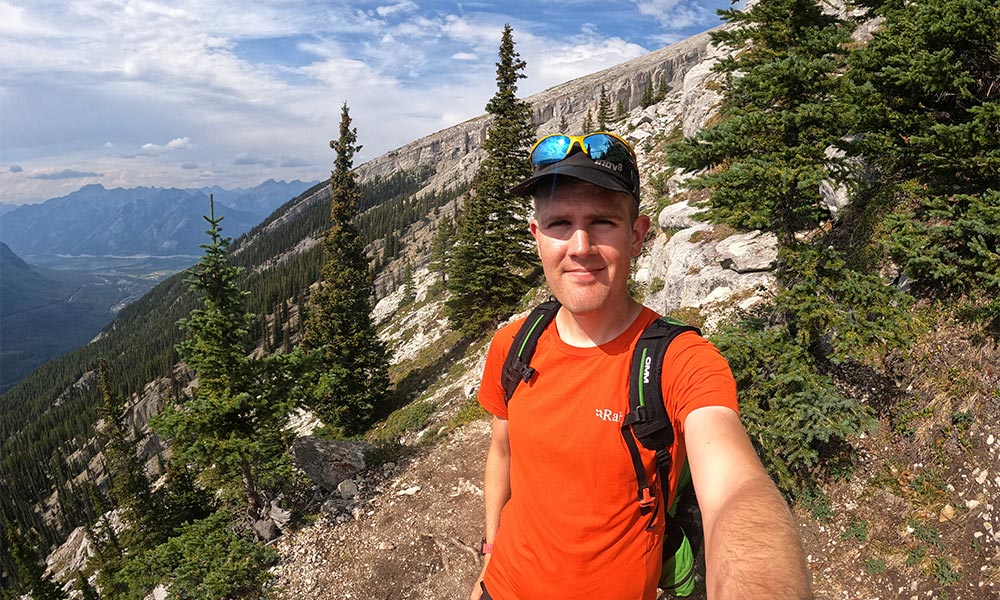
Alex on holiday alone in Canada
“Who are you going with?”
This was perhaps the most frequent question before heading on a solo road trip across the Canadian Rockies this summer. Societally, there’s something about spending time alone that still strikes fear into many and receives concerned looks as you walk into a restaurant asking for a table for one.
For me, solo adventures have long been totally normal and the most comfortable option. I’ve been fortunate to go on several solo holidays like Norway, Thailand and even trekking in the Himalayas – with just me, myself and I. Maybe I’m just rubbish company! Whether you’re a weekend hiker with friends, a Sunday club cyclist or half-term wild camper with the family, there’s undeniably a huge amount of benefit to our mental wellbeing when sharing our outdoor adventures with other people and building a community.
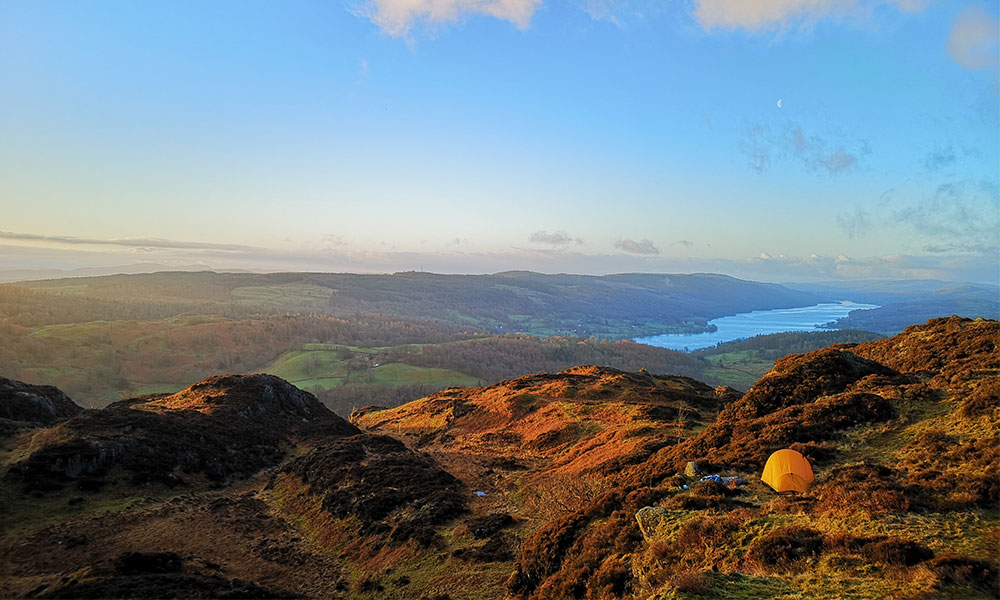
Solo wild camping
However, there may be occasions when this holds us back, such as if we can’t find others with the same objectives, desire, or availability to meet our plans. Maybe a lack of confidence or fear about the planning, getting lost, or bumping into bears (a real possibility) can stop us venturing out alone. Even the most social adventurer can benefit from going solo now and again, here are some of the positives that you’ll get out of it.
Become a problem solver
We don’t realise what we’re capable of until there’s nobody else to call on. This itself may seem daunting when we’re used to relying on others, but our problems are very unlikely to be life or death. Overcoming them instils a level of self-confidence in our ability and independence that makes our daily lives much less stressful too. Any drama we create is created by ourselves. When you’ve negotiated a pot noodle in a rural Tibetan teahouse with zero English, been chased by wild dogs in Thailand and improvised cutlery with your toothbrush in a tent in Glen Affric, most things back in the UK feel fairly benign by comparison.
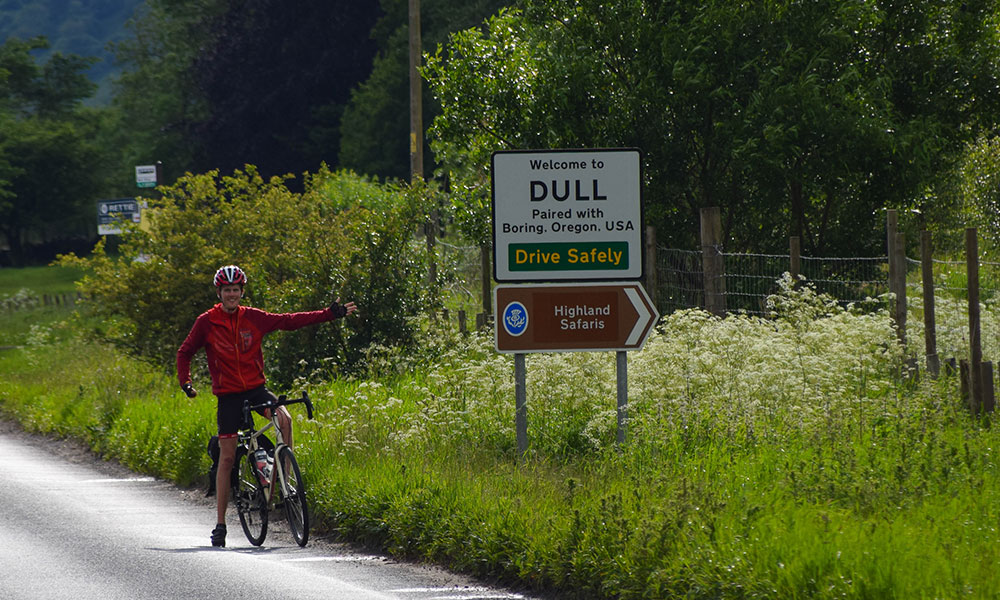
Credit: Richard Ellis
Get to know yourself
Solo adventures bring an extra responsibility and level of ownership. In our hectic modern lives, conjoined to our devices at birth, getting time alone with our thoughts can be increasingly rare and almost uncomfortable. But in this time, we discover our strengths, values and what we enjoy (and don’t enjoy) doing. We have the chance to ponder the meaning of life and major life events without interruptions. That also brings a greater sense of achievement and satisfaction when we complete the adventure, and a boosted confidence in our capabilities. Albeit my singing skills aren’t particularly promising.
Freedom to be spontaneous
Usually, I’m an obsessive planner. When walking down the street in Banff trying to decide my plans for the day, I passed a water sports centre renting out paddleboards, something I had never tried before. Less than ten minutes later I found myself trying to stay upright on the beautiful turquoise river and having a brilliant time and being unapologetically selfish. If I had someone else with me, maybe I wouldn’t have done that.
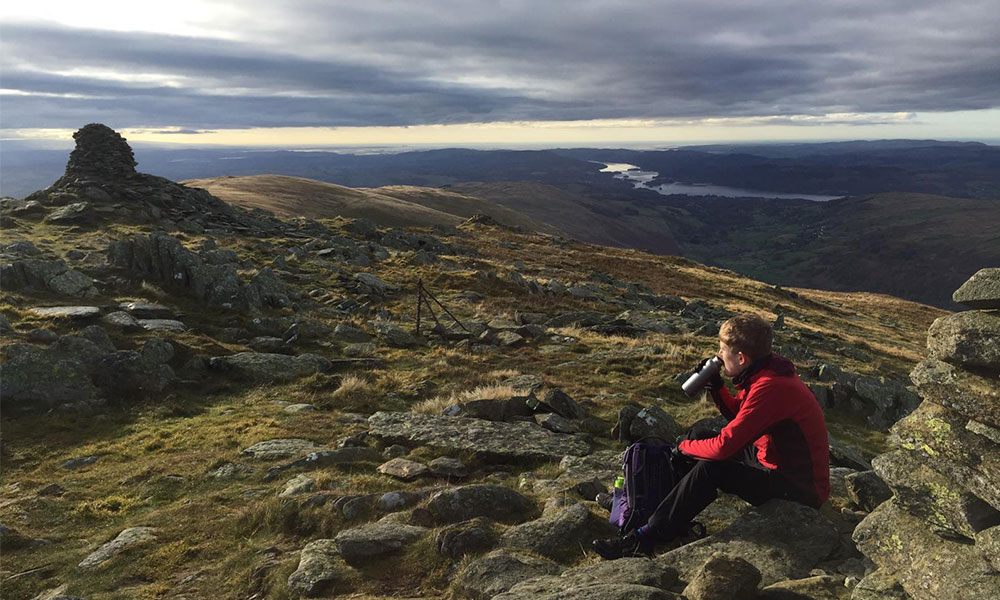
Alex finding peace in the mountains
Meet new people
This may sound counter intuitive but being alone isn’t as lonely as you think. People tend to be more curious to speak to you and you will look more approachable to fellow solo travellers. Even a smile and ‘hello’ from a passing walker was a big mood-booster in the remotest parts of Scotland, where I could cycle for hours without seeing anyone. If people ask you to take a photo at a certain landmark, make sure you ask for one in return! This is such a simple icebreaker to conversations.
Be in the moment
I can fondly remember sitting in a cosy restaurant in Northern Norway, reading a book and gazing out the window into a snowy street, whilst the couples around me were mostly silent and buried in their mobile phones. Whilst bouncing ideas off other people can inspire creativity, being able to choose our own perspectives without pleasing others is refreshing, and you’ll take in sounds and sights you might have never noticed.
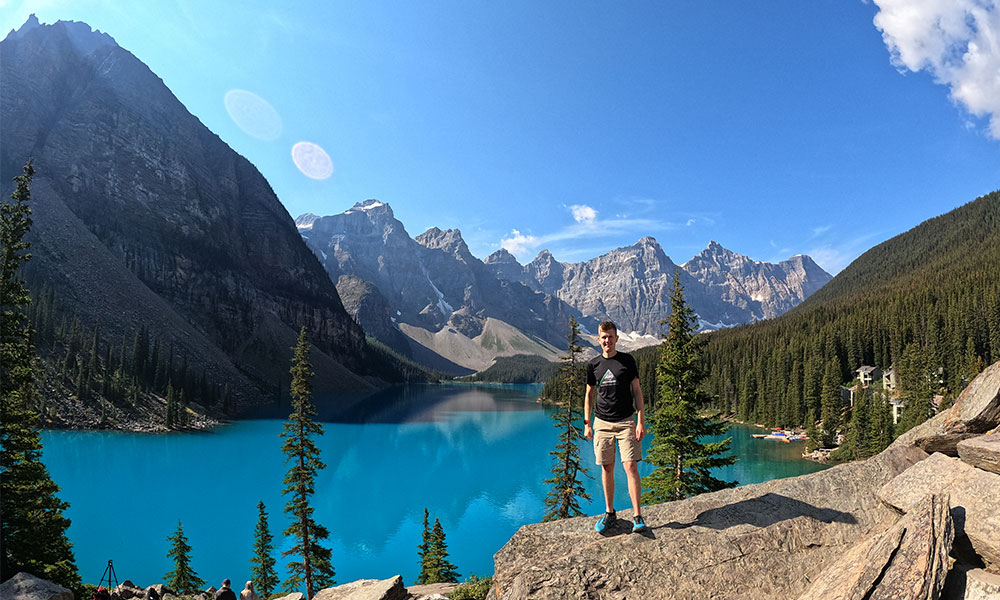
Alex on a solo trip to Canada
Set your own budget
In Canada I’d heard rave reviews of the Afternoon Tea at the Fairmont Chateau Lake Louise. It wasn’t cheap, but the experience was firmly on the growing bucket-list. My dusty hiking clothing probably caused offence to the smartly-attired couples sat in the elegant dining room, but I could indulge myself without having to worry about others.
If this has led you to consider your own solo adventure, you may be wondering where to start.
Here’s a few key lessons I’ve taken away from solo adventures to help you have your own.
Start small
Solo adventures don’t have to be epic multi-day outings in the greater ranges. Realistically, some people might only manage a day or a few hours to themselves in the evening because of work, health or family commitments. The book ‘Microadventures’ by Al Humphreys has lots of practical inspiration for thinking closer to home. If you’re planning a weekend away, consider going somewhere you’re already familiar with or not far away. It’s better to start small and increase confidence rather than having a negative experience that might deter future solo escapades.
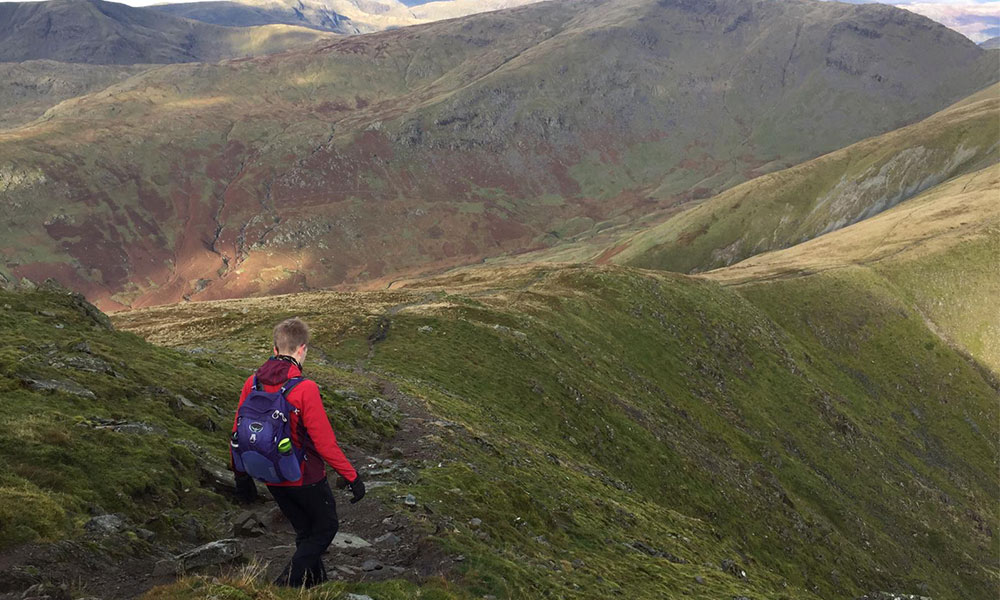
Hiking alone
Get inspired
Make your own bucket-list. Write down the things you’ve always dreamt of doing. This is bound to get the imagination flowing and some ideas that have seemed beyond reach could give you a goal to work towards. Perhaps you could backpack in your nearest National Park, tick off some of the UK cycle classics, or climb the highest point of your own county.
Focus on your strengths
You don’t have to be Bear Grylls to go on a multi-day hike and snare wild rabbits for dinner. If you’re not great at navigation, start with a popular or waymarked trail such as the Offas Dyke path where there are already an abundance of resources, blogs and guides to learn from. Skills courses at outdoor centres are a good way to upskill and build your competence.
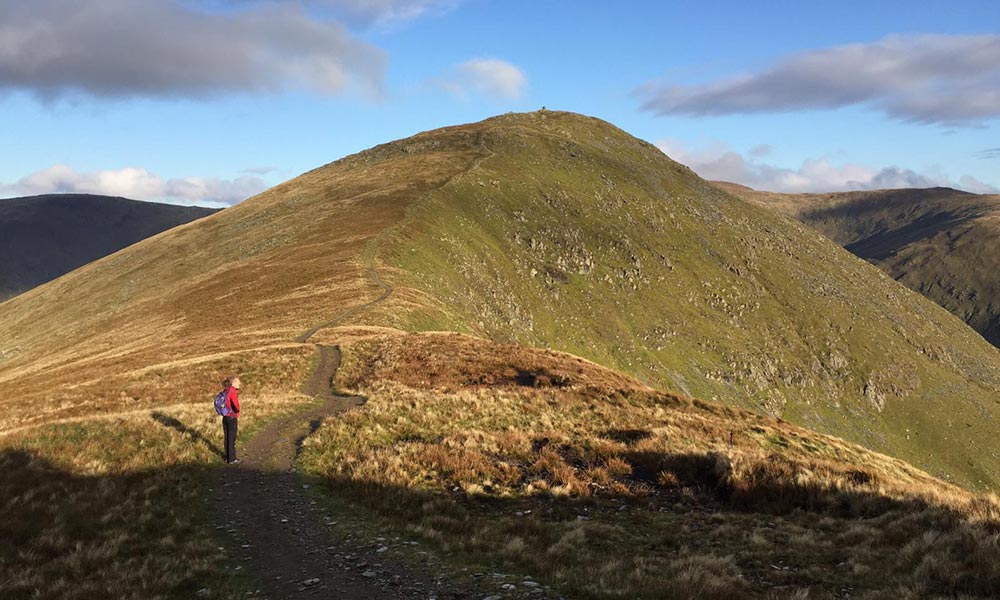
Freesom of the hills alone
Pack some home comforts
Your favourite podcast or audiobook can be a great relief if the sound of silence gets too much. If you’re having a rough day other people are generally very quick to help. Talking to sheep can also be extremely therapeutic. And restaurants can almost always squeeze one person in.
Stay safe
Whilst there’s legibly no greater chance of something going wrong – personally, I tend to trip over more often when too busy chatting to others – there are potentially more consequences if something does go wrong when out alone. Always share your planned routes with friends and family and check in at regular intervals so that people can raise the alarm in the worst-case scenario. If you’re going off-grid, bringing a tracking device such as Open Tracking or let family know that you might be out of contact for a few days to reduce any false callouts!
I hope
this has inspired you to take your first solo adventure and discover incredible
places all for yourself. Nobody else might take your word for it – and maybe
that’s all of the fun!

